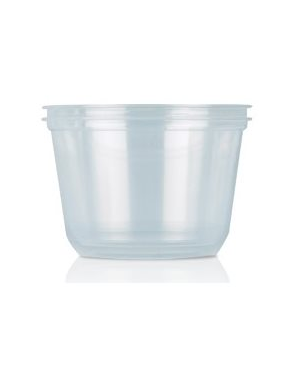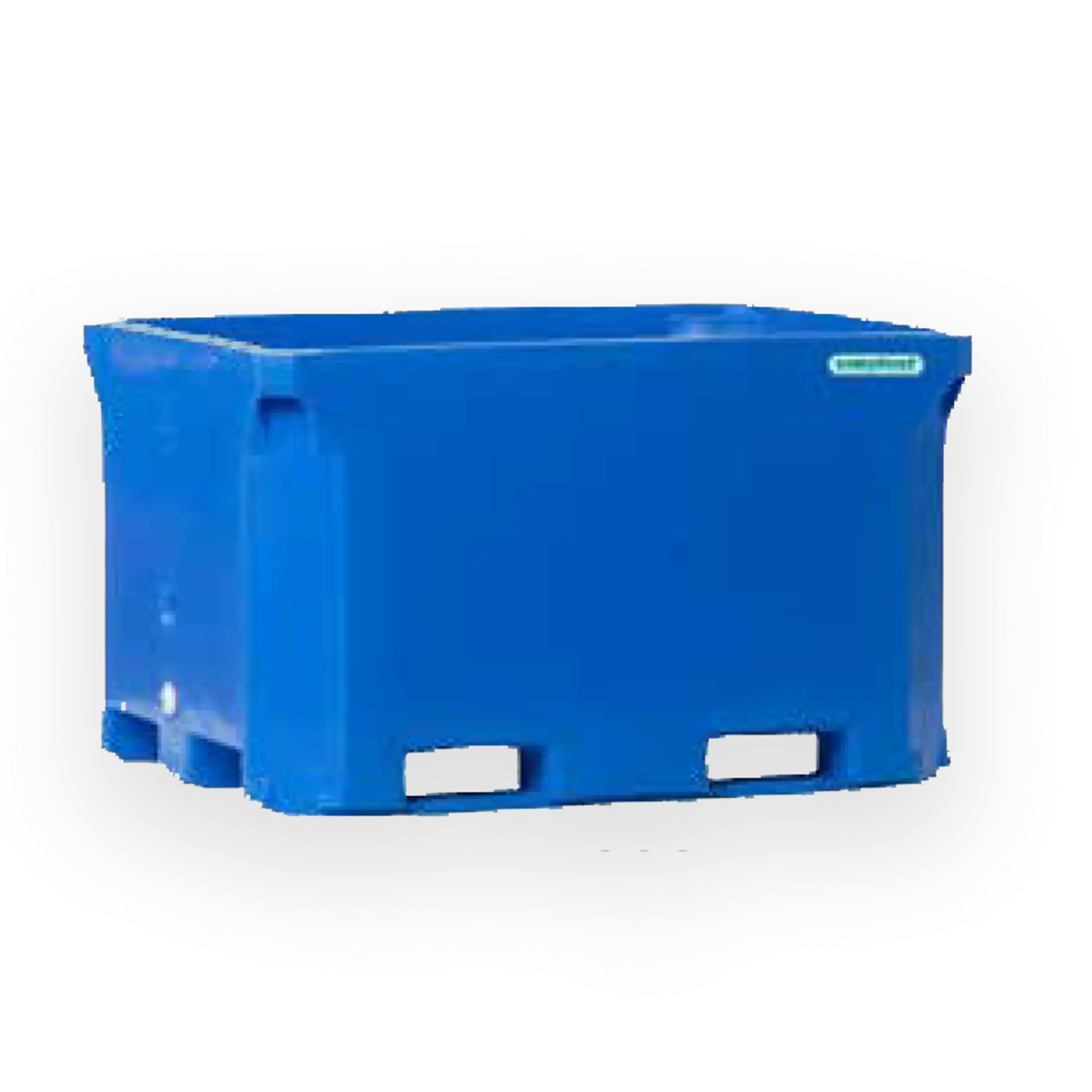A Comprehensive Overview to the Different Kinds Of Mass Plastic Containers Available Today
Mass plastic containers play a critical function in different sectors, supplying remedies for storage space and transport. Their varied kinds accommodate various requirements, from stiff options for solid products to versatile containers suiting numerous forms. Each type offers unique benefits, making it necessary to understand their features and applications. As markets progress, so do the demands for effective container solutions. What variables should one take into consideration when choosing the best mass container?
Summary of Mass Plastic Containers

Kinds Of Bulk Plastic Containers
Mass plastic containers come in different kinds, each suited to certain applications. Stiff mass containers, flexible bulk containers, and intermediate bulk containers represent the primary classifications, each offering special advantages. Comprehending these types is necessary for choosing the right container for carrying and keeping materials.

Inflexible Mass Containers
Stiff bulk containers are essential for reliable storage and transport of numerous products across industries. These containers are commonly constructed from resilient plastics, permitting them to stand up to harsh handling and ecological problems. They can be found in numerous shapes and sizes, consisting of containers, totes, and drums, making them suitable for saving whatever from granular compounds to liquids. Rigid containers usually include enhanced walls and safe covers, ensuring the contents remain shielded during transit. Their stackable layout maximizes storage area, making them perfect for storage facilities and producing centers. Additionally, several inflexible bulk containers are recyclable and multiple-use, adding to sustainability efforts. In general, their effectiveness and versatility make stiff mass containers a crucial component in supply chain operations.
Flexible Mass Containers
Adaptable mass containers, typically described as flexible intermediate bulk containers (FIBCs), serve as a versatile service for delivering and keeping a variety of completely dry products. These containers are typically made from woven polypropylene and are created to be lightweight yet solid, enabling for efficient handling and stacking. Their adaptability enables them to fit numerous shapes and dimensions, making them ideal for items ranging from grains to chemicals. FIBCs can be geared up with functions such as spouts for very easy filling and discharge, as well as protective layers for enhanced toughness. Additionally, they are recyclable and multiple-use, contributing to lasting techniques in sectors like agriculture, food processing, and construction. Overall, flexible mass containers supply a affordable and effective alternative for mass product monitoring.
Intermediate Mass Containers
Intermediate bulk containers (IBCs) are important for the efficient transport and storage space of fluids and granular products across different markets. These containers commonly have a capacity ranging from 275 to 330 gallons and are made for easy stacking and managing. Made from durable materials like high-density polyethylene or steel, IBCs offer superb protection against contamination and environmental elements. Their style includes functions such as an integrated pallet for forklift gain access to and a detachable top for simple dental filling and cleansing. IBCs are commonly utilized in chemical, food, and pharmaceutical fields, ensuring compliance with safety regulations. Their versatility and reusability make them an affordable solution for mass storage and transportation, adding to supply chain efficiency and sustainability.
Attributes and Benefits of Bulk Plastic Containers
Mass plastic containers are essential devices in numerous markets, using a combination of longevity and usefulness. These containers are constructed from high-grade materials, making them immune to effects, chemicals, and ecological factors. This robustness guarantees item security during storage space and transport.
Additionally, mass plastic containers are light-weight, facilitating convenience of reducing and managing shipping expenses. Their stackable design maximizes storage space effectiveness, permitting for enhanced stockroom area. Several models include protected covers or closures, providing a closed seal that prevents and protects materials contamination.
Mass plastic containers are typically multiple-use and recyclable, adding to sustainable methods. Their convenience allows for a vast array of applications, from food storage to industrial use, enhancing their value across markets. Services take advantage of the lengthy lifespan and low maintenance requirements of these containers, making them an affordable service for both long-lasting and temporary requirements.
Industries That Use Bulk Plastic Containers
Different markets take advantage of the use check my source of bulk plastic containers, each leveraging their distinct properties for specific applications. The food and beverage sector depends on these containers for secure storage space and transport of items, while the chemical production market uses them for taking care of unsafe products. In addition, the pharmaceutical circulation requires stress the relevance of durability and cleanliness in packaging solutions.
Food and Drink Sector
As the demand for reliable and safe storage services remains to climb, the food and beverage market progressively depends on bulk plastic containers for their functional demands. These containers offer robust, lightweight, and flexible options for keeping components, ended up products, and waste products. Made from food-grade materials, they guarantee conformity with health and wellness standards. Numerous layouts, such as stackable containers and carry boxes, optimize room throughout transportation and storage space, improving logistical efficiency. Furthermore, the transparency of some mass containers enables simple supply administration, decreasing the threat of perishing. With the market's concentrate on sustainability, numerous suppliers are now supplying recyclable and recyclable options, aligning with environmentally friendly techniques while meeting the high demands of food safety and security and hygiene.
Chemical Manufacturing Field
The chemical manufacturing market counts greatly on mass plastic containers for the risk-free and efficient storage of resources, intermediates, and ended up items. These containers are created to stand up to various chemicals, guaranteeing that dangerous materials do not leakage or degrade the container itself. Common kinds consist of high-density polyethylene (HDPE) and polypropylene containers, which supply outstanding chemical resistance and durability. Their lightweight nature and click over here now stackable style assist in transport and storage, enhancing area in producing centers. In addition, many bulk plastic containers come with features such as tamper-evident seals and easy-to-read labeling, boosting safety and security and compliance with industry policies. In general, bulk plastic containers are important to the chemical production procedure, giving dependable services for managing diverse compounds.
Pharmaceutical Distribution Needs
Pharmaceutical distribution depends on mass plastic containers to meet stringent safety and regulatory requirements. These containers are vital for delivering and saving a range of pharmaceutical products, consisting of energetic pharmaceutical components (APIs) and completed medications. Their design warranties defense against contamination, wetness, and light, keeping the stability of sensitive materials. In addition, bulk plastic containers are compliant with industry standards such as Excellent Production Practices (GMP) and are typically made from materials that are FDA-approved. Using these containers boosts effectiveness in the supply chain, permitting safe, large circulation while reducing waste. Companies in the pharmaceutical field focus on the use of durable, watertight, and tamper-evident containers to guarantee product safety and security and high quality throughout the logistics process.
Factors to consider for Choosing the Right Container
When picking the suitable bulk plastic container, numerous factors must be carefully evaluated to assure suitable functionality and safety. The nature of the products to be kept is critical; compatibility with the container's product can influence honesty and safety. Bulk Plastic Containers. Additionally, the container's shapes and size need to straighten with the storage and transport needs, assuring effective area utilization
Tons ability is another crucial factor to consider, as it should fit the weight of materials without danger of damages or failure. The layout features, such as venting or lids, can influence use and gain access to. Compliance with market laws is important, especially in fields like drugs, where safety standards are strict.
The expected life-span and sturdiness of the container should be check it out evaluated to confirm it satisfies the functional demands without frequent replacement. By evaluating these elements, one can choose the most appropriate bulk plastic container for particular applications.
Environmental Effect and Sustainability
As organizations significantly focus on sustainability, the ecological influence of mass plastic containers has actually come under analysis. These containers, often made from materials such as polyethylene or polypropylene, contribute greatly to plastic waste if not managed properly. Their manufacturing entails the usage of nonrenewable fuel sources, which can cause boosted greenhouse gas discharges. Nevertheless, developments in reusing innovation and the growth of biodegradable alternatives are aiding to alleviate these worries.
Several manufacturers are taking on methods that stress the use of recycled products, thus lowering the need for virgin plastics. The longevity of bulk plastic containers additionally plays a function; they are made to be recycled several times, which can decrease their overall ecological footprint when contrasted to single-use alternatives. Eventually, the sector faces the challenge of stabilizing functionality with environmental duty, making sustainable methods crucial for the future of bulk plastic containers.
Finest Practices for Storage Space and Transportation
Efficient storage space and transportation of bulk plastic containers substantially influence both operational performance and sustainability. To make best use of space, companies need to stack containers safely, ensuring security and protecting against damage. Proper labeling is necessary for very easy identification, which improves access procedures. In addition, keeping a orderly and clean storage space location lowers the risk of contamination and enhances safety.
For transportation, choosing the best vehicle is crucial; containers need to be protected to prevent shifting throughout transportation. Firms should also think about utilizing pallets to assist in much easier loading and dumping. Normal examinations of containers for damage can prevent costly substitutes.
Temperature level control is an additional vital facet, as severe problems can jeopardize the integrity of the plastic. Lastly, training personnel on best techniques for managing and transport assurances compliance and promotes a society of safety. By carrying out these finest methods, businesses can boost their functional effectiveness while contributing to environmental sustainability.
Regularly Asked Inquiries
Exactly how Do I Tidy Bulk Plastic Containers Properly?
To clean bulk plastic containers successfully, one should wash them with warm water, make use of a moderate cleaning agent and scrub with a soft brush. Rinse extensively, then allow to air dry completely before storage space or reuse.
What Is the Life Expectancy of Mass Plastic Containers?
The life expectancy of mass plastic containers normally ranges from 5 to 10 years, depending on the material, usage, and environmental conditions. Correct maintenance and storage space can significantly expand their functionality and longevity gradually.
Can Mass Plastic Containers Be Personalized?

Do Mass Plastic Containers Have Warranty Options?

Exist Laws for Utilizing Mass Plastic Containers?
Yes, guidelines exist for utilizing bulk plastic containers, mostly focused on security, environmental impact, and material compliance. These regulations assure that containers fulfill sector criteria and are ideal for moving numerous materials safely and effectively.
Stiff bulk containers, flexible mass containers, and intermediate bulk containers stand for the main categories, each offering one-of-a-kind advantages. Adaptable bulk containers, typically referred to as flexible intermediate mass containers (FIBCs), serve as a functional service for saving a range and transporting of completely dry products. The chemical production industry counts greatly on bulk plastic containers for the effective and secure storage of raw products, intermediates, and finished products. plastic bulk containers. These containers are designed to withstand different chemicals, ensuring that unsafe materials do not leakage or deteriorate the container itself. In addition, bulk plastic containers are certified with sector requirements such as Excellent Manufacturing Practices (GMP) and are typically made from products that are FDA-approved